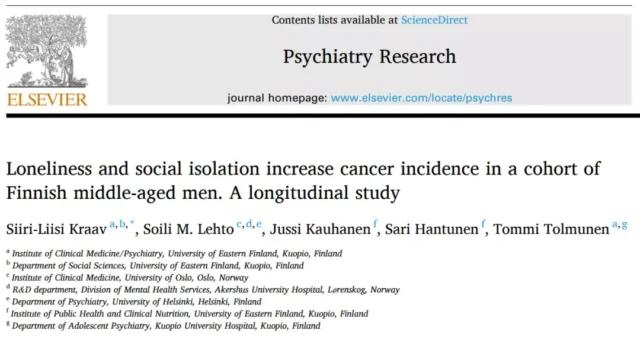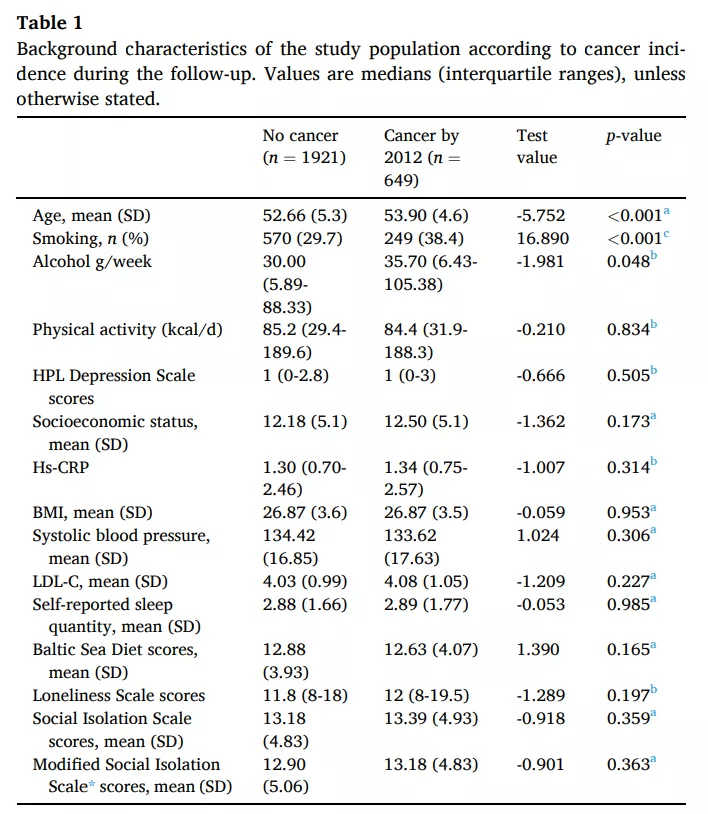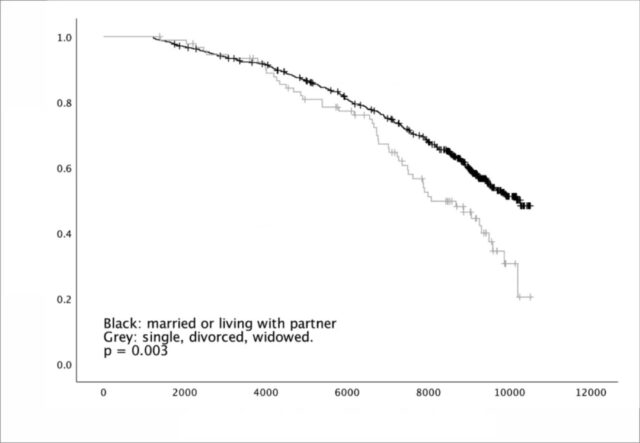Single people are more susceptible to cancer and with higher death rate
- Normal Liver Cells Found to Promote Cancer Metastasis to the Liver
- Nearly 80% Complete Remission: Breakthrough in ADC Anti-Tumor Treatment
- Vaccination Against Common Diseases May Prevent Dementia!
- New Alzheimer’s Disease (AD) Diagnosis and Staging Criteria
- Breakthrough in Alzheimer’s Disease: New Nasal Spray Halts Cognitive Decline by Targeting Toxic Protein
- Can the Tap Water at the Paris Olympics be Drunk Directly?
Single people are more susceptible to cancer and with higher death rate
- Should China be held legally responsible for the US’s $18 trillion COVID losses?
- CT Radiation Exposure Linked to Blood Cancer in Children and Adolescents
- FDA has mandated a top-level black box warning for all marketed CAR-T therapies
- Can people with high blood pressure eat peanuts?
- What is the difference between dopamine and dobutamine?
- How long can the patient live after heart stent surgery?
Single people are more susceptible to cancer and with higher death rate.
As we all know, living habits are closely related to health, and bad living habits are related to the occurrence and development of many diseases.
For example, bad eating habits, smoking, obesity, etc. can lead to serious health problems, and even cancer.
Recent studies have shown that the health hazards of loneliness may be as serious as smoking or obesity.
However, the link between loneliness, lonely social interaction and cancer is still poorly understood.
Recently, researchers from the University of Eastern Finland published a research paper titled: Loneliness and social isolation increase cancer incidence in a cohort of Finnish middle-aged men. A longitudinal study in the journal Psychiatry Research .
The study shows that middle-aged men’s loneliness is associated with an increased risk of cancer , and that single men (unmarried, widowed, divorced) have a higher mortality rate for cancer patients .

In order to study the link between loneliness and cancer, the research team initiated this study in the 1980s. A total of 2,570 middle-aged men from eastern Finland participated. Then they have been registered to monitor their health and mortality.
Surveillance data indicated that during the follow-up period, 649 men (25% of participants) developed cancer and 283 men (11%) died of cancer.
As we all know, age, socioeconomic status, lifestyle, sleep quality, depressive symptoms, body mass index, heart disease and other factors are all related to the occurrence of cancer, but even if these variables that affect the occurrence of cancer are adjusted, loneliness and the total incidence of cancer can still be observed rate-dependent , lonely social (social isolation) is also associated with the overall incidence of cancer.
Overall, loneliness increases the risk of cancer by about 10% .

In addition, unmarried, widowed, or divorced male cancer patients have a higher mortality rate than male cancer patients who are married or living with a partner .

In general, after adjusting for lifestyle and health-related variables, it is found that loneliness is associated with the overall incidence of cancer , and social isolation is also associated with the overall incidence of cancer . Especially loneliness is related to the incidence of lung cancer .
Lonely Social (Social isolation), refers to the network of fans and a lot of friends, real friends can talk to very little. This has become a distinctive feature of the interpersonal relationship of today’s young people.
In addition, unmarried, widowed, or divorced male cancer patients have a higher mortality rate than male cancer patients who are married or living with a partner .
This study found that regardless of the size of social network relationships, middle-aged men’s loneliness is associated with increased cancer incidence and mortality. However, the mechanism behind these associations is still unclear, and further research is needed.
With the increasing awareness of the effects of loneliness on health, it is important to study the mechanism of loneliness’ adverse effects on health in more detail.
This information will enable us to better alleviate loneliness and the damage it causes, as well as to find the best methods for preventive measures.
Paper link:
https://doi.org/10.1016/j.psychres.2021.113868
Single people are more susceptible to cancer and with higher death rate.
(source:internet, reference only)
Disclaimer of medicaltrend.org
Important Note: The information provided is for informational purposes only and should not be considered as medical advice.



